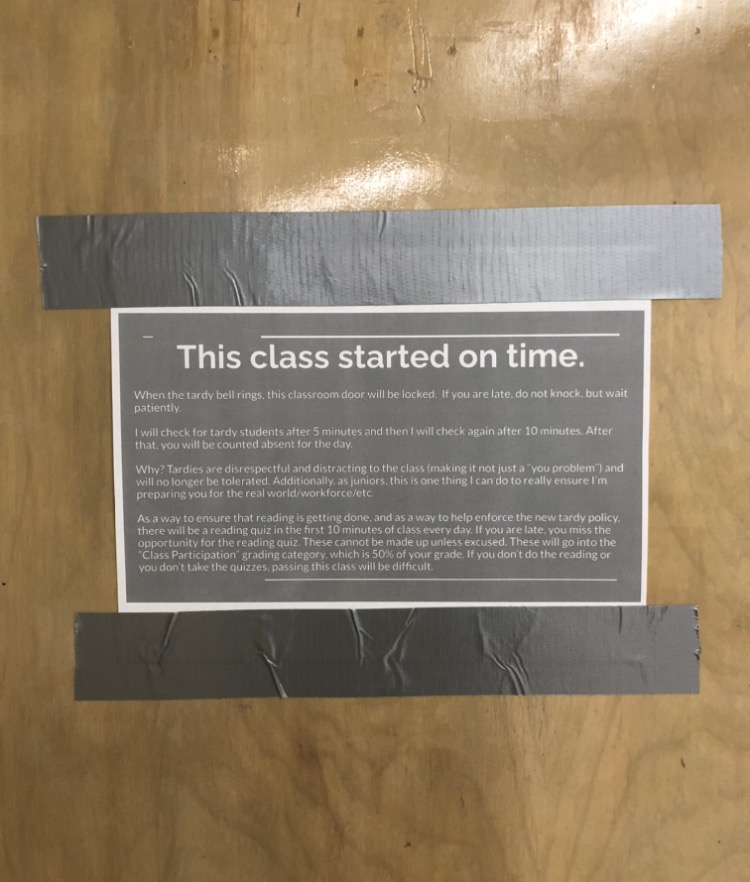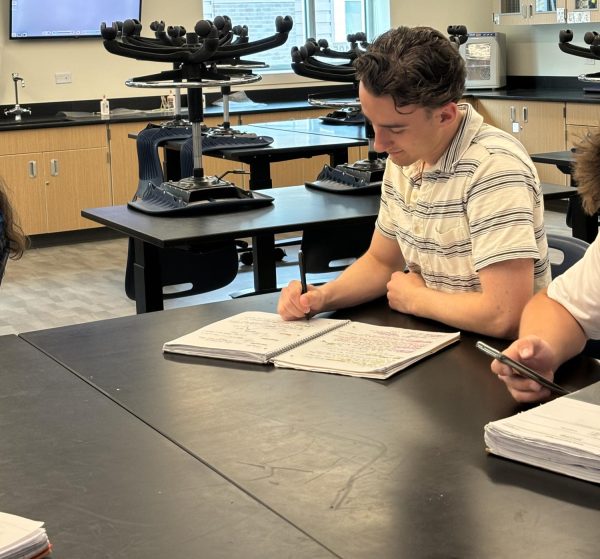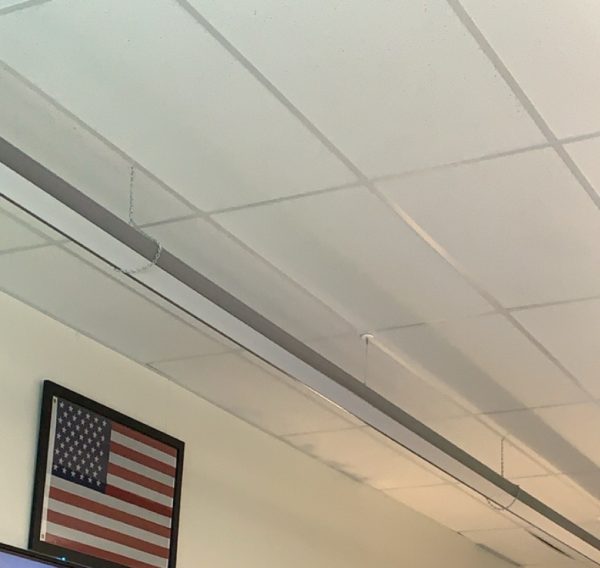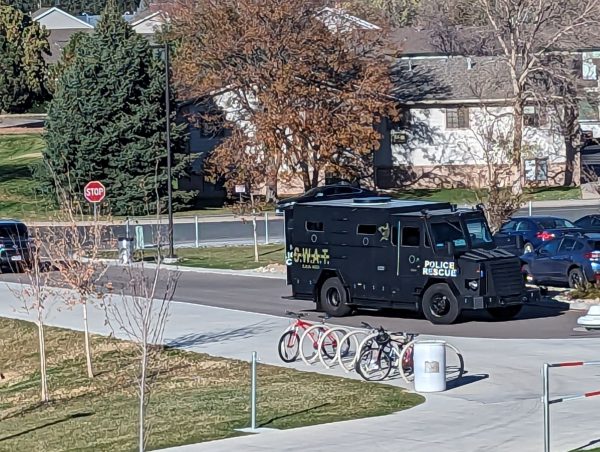27,000 tardies in first semester led to policy enforcement
Ms. Amy Tuttle’s tardy policy, as displayed on her door. Students returned from winter break with new expectations on punctuality.
January 6, 2022
In the first semester of the 2021-22 school year, Greeley West students racked up nearly 27,000 tardies in total. As a result, the Greeley West faculty is setting out to enforce the tardy policy more heavily.
The current tardy policy has been in effect for some time now, but teachers had been more forgiving with absences and tardiness due to the Covid adjustments. As things have returned to normal, students are strongly encouraged to stop talking in the halls, avoid the hub, and get to class first thing during passing periods.
Although getting to class first thing could be helpful for some students, others still leave their backpacks in the classroom and then leave once again. West’s absence and tardy rate has risen 5% in the last semester, and to put that in perspective, 5% of 27,000 is 1,350. That means West’s tardy rate has increased by 1,350 in tardies in just one semester. Although this number may not seem that of a big deal compared to the original rate, it still concerns the administration of our school and teachers as well.
Junior Samantha Flores says that she finds the policy to be, “just a little too much.” She said that it “may make students not even go to class after doors have been locked.”
Many students at West agree with Flores. For some, students the policy may become stressful and hard to get used to as teachers will have different policies. The administration has certainly heard those cries and opinions. They constantly hear them in the hallways, and often deal with upset students after being marked absent (not to mention when parents become upset on occasion as well).
So is the administration handling all of this well? Sophomore Lida De Los Santos says yes. She said that cracking down on tardies could be very helpful to the school’s SAT testing scores, and students could even rank higher on their MAPs testing. De Los Santos morally believes that one of the only ways to fix this late and absent problem is to be just a little more strict.
Students who are late have a tendency to have lower grades than others who are more punctual about their arrivals to class. This may have a correlation with students feeling that class is not important. When people display behaviors that correlate with certain thought processes, it can make a person think different things. It’s similar to speaking negatively about something (even if not on purpose). The brain begins to make associations with that experience, person, or environment and sees it as bad. Basically, teachers are betting that punctuality will lead to positive experiences in their classes.
The school’s attendance rate is struggling, but with the new rules in place, the school hopes that the student body begins to make a better effort to come to class, get the necessary work for the day finished, and continue to do their best to surpass expectations.












Brandon Torrez • Jan 25, 2022 at 7:00 pm
Good article Ru. Hey, is it “old school” to be on time? Will your generation pass on the importance of being on time to your kids?
LaMar Beverly • Jan 6, 2022 at 8:54 pm
Nice job Ruthi! Makes sense to me, and I believe the new measures should help with attendance and, therefore better learning.
Aunt Alene • Jan 6, 2022 at 4:45 pm
Very well written. You have a talent in writing. Good job.